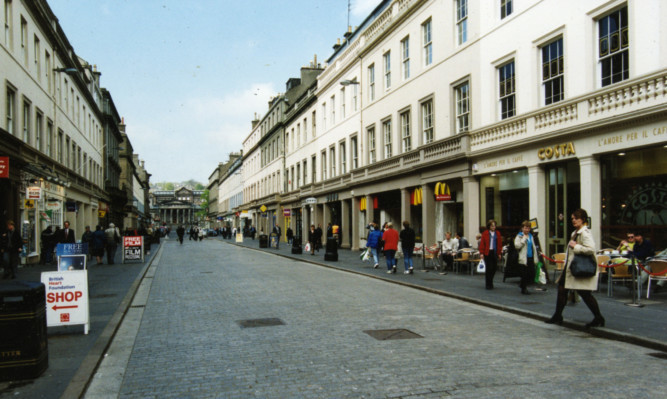Seldom has news of the opening of a restaurant, a coffee shop and flats in a street been better received in Dundee.
These developments, worth a combined total of millions of pounds, are set to mark a turnaround in fortunes for Reform Street.
They could also have wider implications and open the way for a new and hopefully vibrant type of thoroughfare in our city and town centres.
The problems suffered by the street that stretches from Dundee High School to City Square have been painfully exposed for all to see.
For generations it has proudly hosted the city’s showpiece parades and festivals, as well as many of its famous shopping names.
In recent years it has deteriorated alarmingly to be scarred by empty units offering little to attract the curious visitor, with only a few retailers resolutely standing their ground.
Unaffordable business rates were cited as a reason for retailers taking flight, with the levies based on rateable values calculated from pre-recession higher rents.
That lifts the lid on what is largely the problem of Reform Street, and streets like it up and down the country the cost of running a shop from a building.
For many traders it is cheaper to run an online retailing business than a bricks-and-mortar shop.
Online shopping is increasingly popular with customers, as is regularly borne out by statistics, signalling a trend that is unlikely to change.
Figures from the British Retail Consortium this week showed that more than 20% of UK retail sales in February took place online, presenting continuing evidence of a clear shift towards new patterns of buying.
This poses important issues for town centres that are also under attack from retail parks which growing numbers of shoppers prefer to visit.
There is a lot to like about visiting town centres, although the dominance of shopping as the purpose of visits seems to be weakening.
So what can fill the gaps left by the shops that are closing or are moving their trade online?
It seems to be the hospitality industry and is there really anything wrong with that? They are places for people to visit, enjoy the ambience, spend money and boost the economy of our town centres.
The new coffee shop and restaurant could be a lifeline for Reform Street in offering reasons for people to visit the thoroughfare to spend money.
If more people are attracted to pop in for a coffee, a meal or a snack, they might also be persuaded to visit one of the shops down the street.
That in turn could tempt more businesses to move in.
Little in business stays the same.
City and town centres are changing, and maybe more of them will follow the pattern of places to live, enjoy a coffee and dine combined with a spot of shopping, just like Reform Street.
